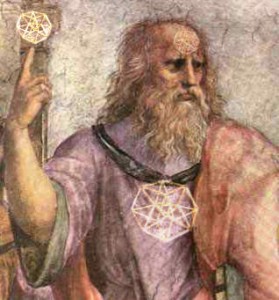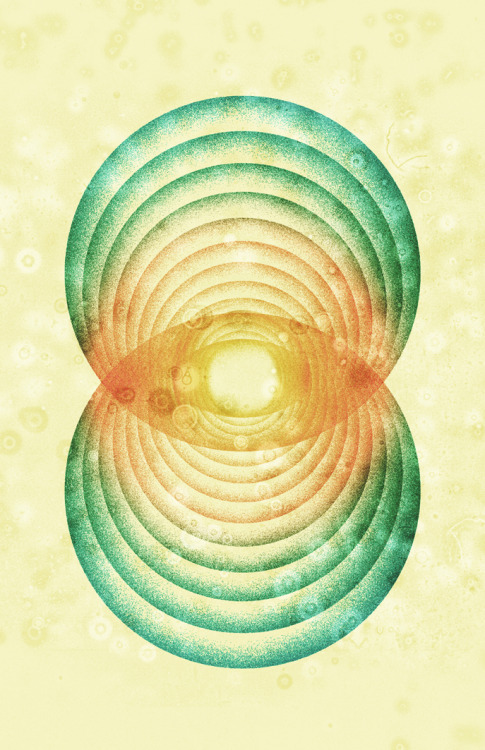THE principles of rotation are such that all points on any outer circumference comply with that gentle central pivot, advancing in predetermined sequence. So it is that there is an arc to any motion, to any question, to any activity. When we arrive at a certain concept it is through a progression of thought so entailed which is ever curved: leaning inwards on a slight tilt, as it were. We do not conceptualize, form thought or phrase laterally, or else such channels of thought would stream out indefinitely, destined for some place in the infinite. Hence, “pearls of wisdom”, have a literal meaning in the spherical graduation.
Remarkably there are interconnecting magnetisms which may be viewed as threads, or rather more correctly, pathways gathering collectives of similar impulse and frequency. But in general terms, all individual concepts are spherical, and the thoughts that travel the circumference, do travel with that ilk.
For one who is logically minded, who has precise reference to compilation and exactness, they are strong in the talent of 'turning the wheels around' (or spheres more correctly), and have the ability to motivate the relative inertia to speedy rotation, with equal ability to call stop when once aligned, and progressively command the vitalities required for such motivation, swiftly and accurately. For the talent for logical and precise conjecture comes of this control, in setting certain points of the circumference of a concept and aligning them so- the control necessary to the inner motivation, outer calculation, and then the commensurate and exacting halt whereupon concentration is fixed upon a particular point of the said circumference.
Inert concepts are what they are, but are not illumined and set to activity until activated by a man's attention and vitality. Once activated they begin to rotate. When a man refers to his 'head spinning', it is in fact the concepts themselves rotating, without a particular fix being exacted. By this is meant a conscious hold on any given point on the circumference of that concept: a particular thought.
Once a concept has been entered into and a thought focused, one may fleetingly experience the thought and withdraw from any further activity, or remain, and with desire born from curiosity, drive and command the rotation, in examining the concept further, in certain sequence of a set order of further thoughts.
As spoken of earlier, the nature of the sphere is introverted, and that point being central is a gateway to a higher realm. Thus in terms of a concept this also is true: that within each concept is a gateway to a principle which holds keys to ever higher thought and divine conceptualization, and so forth. But in order to perceptibly enter into the higher aspects of any given concept, one must experience the concept in total, and have consciously traveled the circumference in entirety.
"I must think around this subject" is a good phrase indeed. Also there are many points of view, points which are fixed on the circumference of a concept.
All concepts are around us to be experienced at all times, for they make up the substance of that life which we perceive. Whether personally activated by us or not, they are there to be had.
This was the divine principle of Plato; here was the introduction to a set order of logical progression and progressive departure from conceptual perception. The primitive man may experience concepts largely, in their entirety. A man who has downcast his faculties of logical inquiry - through persuasions of certain intoxications or intoxicating acts - may return to this condition and find unusual satisfaction in instant but unattainable knowledge; made clear, but indefinable in conceptualizing, rather than experiencing ordered and progressive thought.
Clarity with concentration requires practiced skills of directing one's vitalities, as they are the commander of such; yet also with the element of inquiry necessary to illumine anew, and reactivate new concepts rather than traveling the old ones continually. Much vitality is spent through reviewing our favorites and relaying back and forth to positions held in the memory. Much time is given to sorting out such memories, which do hearken us back to particular spots, so fixed that one may find it difficult to move on from there.
We have true memory as part of our finer, subtle constitution. We also have concepts pertaining to those memories which are colored largely by attitude and personal perception. They need not confer with the reality of the past, but rather the personal aspects attributed to the details so remembered, and impressed. We are subtly bound to re-experience those stimulations with magnetic reference. It is almost as if one illumines a concept, but has not the will to move and propel it accordingly and cannot take the thought so fixed from its position pertaining to the memory, and work it through progressively. However, true learning requires experience to call forth the concept in the first place; therefore memory may also be entirely relevant to this learning.
In some the thinking processes are almost entirely fixed: when an individual who has lost the will for inquiry and cannot motivate his concepts internally and travel their circumference through, but rather clings to that which is stationary. Those individuals unpracticed in this, have difficulty at times when impulses begin to set motion amongst the fixed concepts, and have little flex or control in the stop/start motions - which may result in madness or breakdown; although this need not be the only cause of such malady. For one who is expert at such control of the logical processes, but gleans no particular impressions from such, and experiences for the sake of the practice rather than the value of the thinking, can too be set eventually for the path of disorder and disarray; for the discernment required, the discernment for particulars, has been lost. Again, one can have all sorts of 'spinning' out of control, through lack of control.
A soul who is deemed mentally handicapped can conceptualize. This he certainly experiences, and can be subject largely to the concepts brought forth by the company of the individuals who are around him. He may not be able to experience definitive regions of thought and their aspects, nor regulate those fixed points of focus in sustained concentration, but he can however, experience concepts in a way denied to the ordinary man.
Thus it is that a man denied of human company for a large part of his life, may have extraordinary talents when (in the relatively short-term) fixing his memories at particular points, and retaining them in new concepts. Such it is with children also; however in their case the unfolding faculties are acquired with gentle acquisition.
In the case of hypnosis and hypnotic suggestion, we have individuals who incorporate that of their own fixed perspectives, adhering them artificially to another. Animal magnetism was the process of sympathetic adherence of stationary concepts. In this, the individual being worked upon has frozen the aspect and ability of motivating the concept for himself. With fixed point of thought dictated, the concept is highlighted and imparted to him and imposed. This is why it can be conducted through the eyes, from man to man (if the scurrilous hypnotist is well practiced enough), and needs not words to be passed or conscious acknowledgment on behalf of the victim. Victim they are, for it is curious enough to say, that when one has certain concepts imposed in this way, and thus inspired with a point of reference, they are essentially characterized and motivated by their owner and creator, even though imparted and implanted in another. There can be little or no control on behalf of the adoptee to shift the said concept or work through it with governing motivation. There is no personal correspondence, because if there were, we should all interfere directly with each other's thought so continually that there should be no thought.
Concepts hold unique keys of signature. Therefore total expulsion: exorcism of the implanted and imposed concept is required; which is no easy matter, for the individual having thus received it has not the directive power to move it on, having the weakness to receive it in the first place. Alien concepts can group and congregate, and the susceptibility to receive and endure them may grow intensely also. Also there is little power to identify them, for the individual did not create them and cannot move from that fix on the circumference. This is why hypnotic suggestion can be so effective, and also so perilous to the thinking man. It is not so easy to go to another to remove such concepts, as the very act and submission is granting more of the same.
We should never desire to do another man's thinking for him. This would be depriving and corrupt- even though we do desire in daily life to meet with and communicate in the world of ideas and enjoy similar resonances with similar fixations in attitudes and attentions. We must forever remind ourselves that the progressive pathways of thought are entirely personal- objective or not. There can be no teacher or teaching which can dramatically realign or readjust another's thoughts without there being equally dramatic consequences to the detriment of the pupil. For self-control is, as ever, the key to self-freedom.
Inspiration can awaken a man to a concept and a series of thoughts, which was before unrecognised. Whether or not the man has the strength and vitality to pursue the movements required, in the rotation of those concepts and the progression of thoughts that will follow, is entirely governed by him.
One may practice exploring new realms of thought and gradually one will adopt abilities that hitherto were incogitable. Largely one is dependent on the quality of concepts which are highlighted, and therefore attracted to oneself, as one leads to similar. With alert and keen interest, we can acquire the skills of discovering much knowledge- patient perseverance and application, and an open mind. (Self-governed open mind.)
In reference to the clairvoyant as opposed to the telepathic: one might note that telepathy, as in conversation, has no interference in regards to one's personal concepts; and such thoughts relayed are soon forgotten, having not been adopted personally by the receiver, unless through conscious choice of such discovery. But these concepts are essentially consciously translated, with responses according to the decisions and directives of the second party.
In the case of the medium where consciousness is negated and put aside to rest, as it were, the faculties of logical determination are rendered useless in this process, and thereby weakened. Furthermore, depending upon the individual and his strengths or weaknesses, certain alien concepts may be implanted or imposed, for it is this hypnotic reception upon which he relies on for the receiving of such thoughts and impressions. Thus mediums do not usually have a great capacity for logical thought and abhor with distaste, learning with logical inquiry.
To be balanced in any form of development is to be content with slow and proper progression. Rapid change brings commensurate results. Although it can be said that whenever one enters into a practice of self-improvement and conducts themselves patiently but practically, the results almost immediately are so satisfying and encouraging, that one needs not grandiose results to appreciate the subtle differences between the before and after conditions.
Therefore it is recommended that one be courageous and curious enough to re-learn that which is inquiry. To become interested and experience thought with live questions and motivation. In this, life's learning, all questions do truly hold their answers. . . when one travels the circumference of a concept, working from first thought to last and home again.










What is hypnotism? What is actually happening when one is hypnotised? Blavatsky likened it to Black Magic: "Such is the consequence of public "Hypnotic" experiments which thus lead to, and virtually are, BLACK MAGIC."
ReplyDeleteMax Heindel was unequivocal in his condemnation: Quote:
"To control others by the exercise of will power is mental assault, and even more reprehensible than assault on the physical plane of action. It is this mental assault which is called "hypnotism" and it is graded in its effect just as physical assault is. "The crime of the determined hypnotist is in fact a phase of what the Bible describes as "sin against the Holy Spirit," spiritual evil, and hypnotism may well be said to be the greatest crime on earth and the greatest danger to society. "
The trained hypnotist uses their will to control the processes of thought in another. And this can take place just by eye contact- beware of the breath also. Dr. Steiner says of repeated exposure, the end result is that folk become easier to hypnotise and their etheric body hangs out of their head like a broken sack of potatoes.